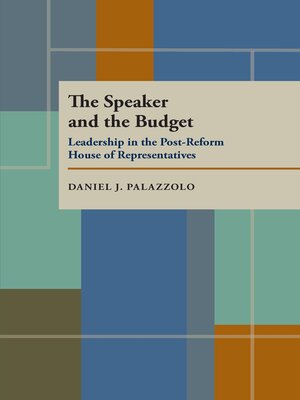The Speaker and the Budget
ebook ∣ Leadership in the Post-Reform House of Representatives
By Daniel J. Palazzolo

Sign up to save your library
With an OverDrive account, you can save your favorite libraries for at-a-glance information about availability. Find out more about OverDrive accounts.
Find this title in Libby, the library reading app by OverDrive.



Search for a digital library with this title
Title found at these libraries:
| Library Name | Distance |
|---|---|
| Loading... |
One of the most important changes in Congress in decades were the extensive congressional reforms of the 1970s, which moved the congressional budget process into the focus of congressional policy making and shifted decision making away from committees. This overwhelming attention to the federal budget allowed party leaders to emerge as central decision makers. Palazzolo traces the changing nature of the Speaker of the House's role in the congressional budget process from the passage of the Budget and Impoundment Control Act of 1974, through the 100th Congress in 1988. As the deficit grew and budget politics became more partisan in the 1980s, the Speaker became more involved in policy-related functions, such as setting budget priorities and negotiating budget agreements with Senate leaders and the president. Consequently, the Speaker's role as leader of the institution was subordinated to his role as a party leader.







